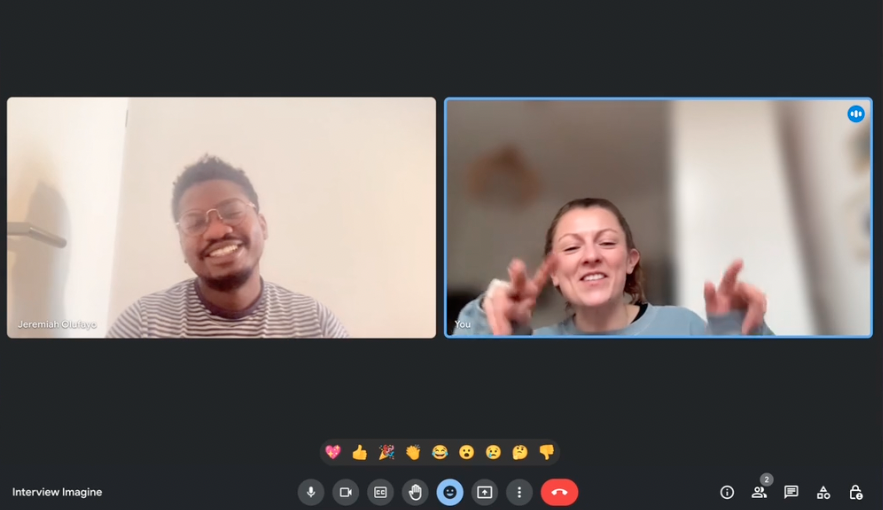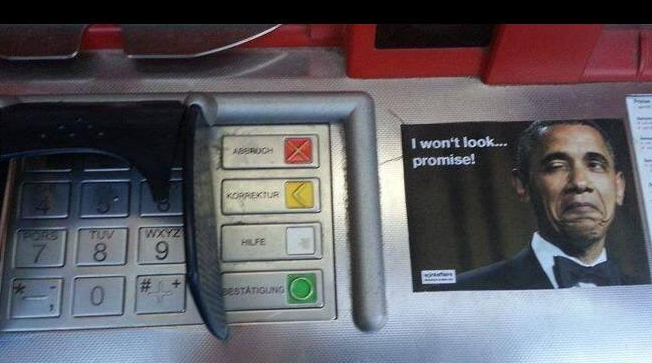What's wrong with German ATM machines?
From Nigeria to Berlin, meet Jeremiah
Jeremiah is an Engineering manager, currently working at commercetools in Berlin. He moved to Germany from Lagos, Nigeria in December 2020. We spoke about the challenges of finding a job outside of your origin country, the differences in hiring and working cultures, the Nigerian hustling attitude, and the weirdness of German ATM machines 🤔. You will learn a lot, I know that I did. And now, without further ado, meet Jeremiah.
Hi Jeremiah, let’s dive in. When and why did you decide to relocate to Germany?
There were different reasons and factors that kind of came together. At that time I was already working for a US company remotely. However, I felt like I needed a new environment to be able to test myself and grow. There are only that many opportunities to work remotely from Africa, you know. At the same time, a few of my friends had already moved to Germany to work, so that was a pulling factor as well. I’d say it was a mixture of me looking for a new challenge and new opportunities and also wanting to follow my friends.
How did you find your current job & what were the biggest challenges in the process?
It all started with something as basic as the structure of my CV. I put a lot of research and effort into getting it right from the beginning. I actually had three different kinds of resumes and cover letters: one for backend, one for frontend, and one for full-stack. These were the roles I was going for. So that was step one.
👉 Check out our material on How to create a CV that gets you hired and our winning CV Template.
Next, I started to look for the right job ads, LinkedIn and Stack Overflow were my go-to platforms here. Well and then, the rejections came flying in.
"Well and then the rejections came flying in..." 🤨
How did you deal with the rejections?
First of all, I didn’t expect to be rejected. It took me by surprise. I was doing really well: good education, good unis, and lots of working experience already. I thought “What could go wrong?”. I applied to over 200 job openings and didn’t receive any feedback. But I was beginning to learn and step by step mastered my CV and applications until I was getting responses and was invited to interviews.
👉 Join our webinars on topics like "How to deal with rejections" and many more.
What are your takeaways from the application process?
My most important realization I guess was that your CV and application need to impress two people at the same time: The “non-technical” recruiter and your future tech lead. They look at different things in your CV and your CV needs to satisfy both viewpoints and interests. If you master that, you win 🫅.
"Your CV and application need to impress two people with different viewpoints at the same time."
How did you master your CV and application at the end?
- Structure is key. Make the life of the recruiter easy.
- Delete all the fussy, non-important stuff.
- Numbers are really important and you should connect those numbers to the company’s success. For example, how did your code impact the company’s revenue? Be as specific as possible.
- Use different CVs and Cover letters for different roles. There is no one-fits-all solution.
- Stand out, and be creative in your cover letter. You should give yourself the best possible chance to get invited. Make it hard for the recruiter not to invite you.
👨🔬 By the way, these learnings are scientific: I checked the response rate for every different type of resume I sent out.
Jeremiah & I during our interview
What differences have you noticed between the German and Nigerian working cultures?
Starting with the hiring culture: What I noticed during the interviews with German companies is that they get really specific. They not only want to know WHAT you did but also WHY you did it. You don’t come far by saying “I did what I was told”.
I’ve noticed that the German work culture is less stressed. You know, in Nigeria, it’s normal to work 50-60 hours per week. Nigerians are hustlers. In the beginning, I was working overtime, I really wanted to impress. A colleague needed to tell me that I’m not supposed to work on Saturdays.
"Nigerians are hustlers."
How would you explain this hustling culture in Nigeria?
I guess when things aren't handed to you easily you get used to working hard in order to get ahead.
What about differences in communication styles?
I used to speak really, really fast. In the beginning, my teammates couldn't understand what I was saying, I needed to learn how to pause myself 🐌.
Is there anything you wish someone had told you before you moved here that you didn't know at the time?
I think I had a pretty good idea of what I was getting myself into. But the German weather and the bureaucratic system still caught me off guard. Also, what’s up with German ATM machines giving back the card before the money? 🥴 This was the weirdest thing for me in the beginning.
Do you have any advice for people who are reading this article?
One thing people should expect: You will get rejected. You need to be at peace with this. Keep applying, your job is out there. It just might take some time to find it.
From my experience companies are still afraid to hire internationally. But there is for sure a change happening and people are realizing that strong technical talents exist anywhere in the world. So, don't be shy in the interviews. You have a lot to offer!
"Strong technical talents exist anywhere in the world."
That’s it. We hope you enjoyed the read. Now it’s time for action. As always, we are rooting for you 🫶.
— Emma and all your friends at Imagine
© 2018-2022 Imagine Foundation e.V. Made with 🤍 in Berlin.



